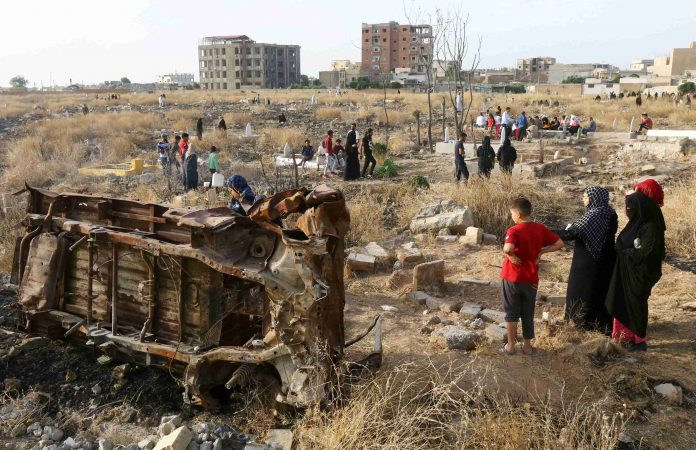Geneva: The U.N. human rights office said on Tuesday that 306,887 civilians had been killed in Syria during the conflict since March 2011, or about 1.5 per cent of its pre-war population, in what it said was the highest estimate yet.
Syria’s conflict sprang out of peaceful protests against President Bashar al-Assad’s rule in March 2011 and morphed into a multi-sided, protracted conflict that sucked in world powers.
The frontlines have been mostly frozen for years but violence is continuing and the humanitarian crisis grinds on with millions still displaced within Syria’s borders.
The latest death toll, based on eight information sources and covering the first 10 years of the conflict through to March 2021, amounts to 83 deaths on average each day of whom 18 were children.
“The extent of civilian casualties in the last 10 years represents a staggering 1.5 per cent of the total population of the Syrian Arab Republic at the beginning of the conflict, raising serious concerns as to the failure of the parties to the conflict to respect international humanitarian law norms on the protection of civilians,” according to the report which was mandated by the U.N. Human Rights Council in Geneva.
Still, the estimate is thought to represent “only a portion of all deaths”, the report said, since it only includes those who died as a direct result of the war and not indirect deaths from lack of healthcare or access to food or water. Nor did it include non-civilian deaths.
The top cause of civilian deaths was from so-called “multiple weapons” (35.1 per cent) which includes clashes, ambushes and massacres, a U.N. report that accompanied the statement showed.
The second cause of death was by heavy weapons (23.3 per cent).
U.N. rights chief Michelle Bachelet said its latest analysis would give a “clearer sense of the severity and scale of the conflict”.
The United Nations said last year that at least 350,209 people had been killed in Syria so far. However, Francesca Marotta, in charge of methodology at the U.N. rights office, clarified on Tuesday that those figures also included non-civilians.


